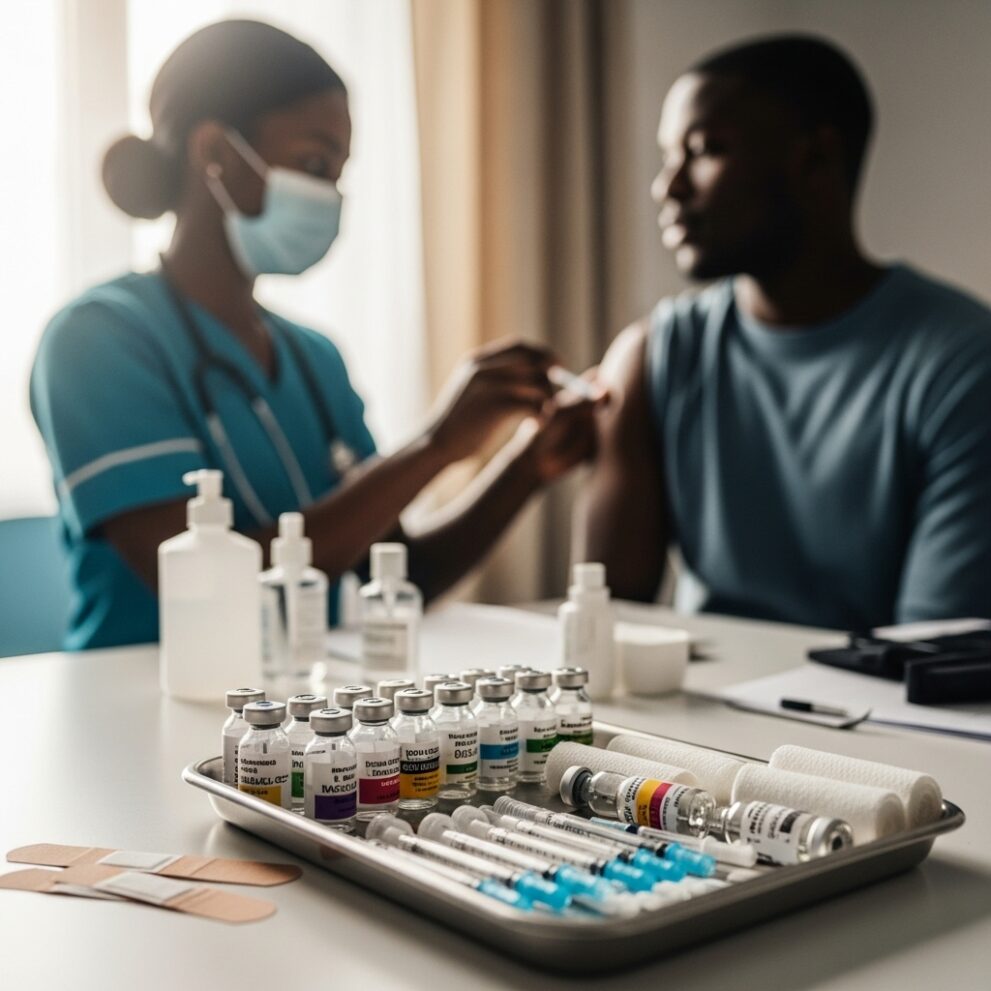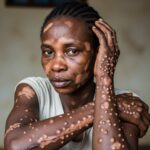

Ghana has embarked on an ambitious journey to strengthen vaccine confidence and build a resilient, self-sufficient health ecosystem. This effort is not only about producing vaccines locally but also about ensuring that citizens trust and accept them. A recent webinar organized by the National Vaccine Institute (NVI), in collaboration with the Ghana Health Service (GHS), the Expanded Programme on Immunization (EPI), the World Health Organization (WHO), and the African Media and Malaria Research Network (AMMREN), made clear that effective communication is as vital as scientific innovation. The event, held virtually on Microsoft Teams, brought together public health experts, journalists, and institutional leaders. Their collective message was that vaccines save lives only when people understand, trust, and accept them.
The opening session was moderated by Dr. Samuel Nuamah and featured remarks from several prominent figures in Ghana’s health sector. Dr. Sodzi Sodzi-Tettey, Acting Chief Executive Officer of the NVI, delivered the keynote address. He expressed gratitude to the collaborating institutions and described the event as “an important moment to align science with storytelling.” He emphasized a crucial point: “A vaccine can only save lives when people understand, trust, and accept it. That is where the media plays a crucial role.” His words captured the essence of the challenge Ghana faces—not just producing vaccines, but ensuring that communities embrace them.
He also reflected on lessons from the COVID-19 pandemic, noting that it revealed the fragility of global vaccine access and pushed Ghana to rethink its dependence on imports. This reflection led to a landmark development: the passage of the National Vaccine Institute Act (Act 1097) in 2023. The Act established the NVI to coordinate vaccine research, development, and manufacturing. According to Dr. Sodzi-Tettey, the Institute’s vision is to build “a self-sufficient, resilient, and innovative vaccine ecosystem rooted in integrity, innovation, and collaboration.” Importantly, he stressed that families and communities—the “end users”—must be carried along at every stage of Ghana’s vaccine journey.
Representing AMMREN, Dr. Charity Binka, Executive Secretary, echoed the critical role of journalists in shaping public perception. She reminded participants that “Vaccines remain one of the most effective public health interventions in human history. But their power can only be realized when people trust and accept them.” Dr. Binka cautioned that misinformation, hesitancy, and limited understanding continue to threaten progress. She cited recent public opposition to the HPV vaccine campaign in Ghana as evidence of persistent challenges.

To address this, AMMREN has committed to training journalists and equipping them with credible, evidence-based health information. She announced the creation of the National Vaccine Media Network, which will serve as a platform for continuous learning and collaboration among vaccine-focused journalists. Her call to action was clear: “The media are trusted voices and educators. Be champions of vaccine confidence. Seek the facts, challenge misinformation, and tell the stories that move hearts and minds.”
The webinar also featured contributions from the Director-General of the Ghana Health Service, the WHO Country Representative, and other senior officials. They emphasized that collaboration across sectors—from health institutions to the press—is essential for maintaining vaccine confidence and combating misinformation. Dr. Sodzi-Tettey commended the Ghana Food and Drugs Authority (FDA) for providing a strong regulatory framework that assures vaccine safety. He also highlighted ongoing technology transfer partnerships that the NVI is structuring with experienced global players. These partnerships will accelerate Ghana’s path toward local vaccine manufacturing, reducing reliance on imports and strengthening national health security.
Speakers celebrated Ghana’s long-standing success in immunization through the Expanded Programme on Immunization (EPI). Since its inception in 1978, the EPI has lifted vaccination coverage above 85% for most antigens and drastically reduced child mortality. This achievement demonstrates Ghana’s capacity to deliver vaccines effectively, but sustaining public trust requires continuous engagement with the media and communities. Dr. Sodzi-Tettey stressed that the story of vaccine production is not only scientific but also a story of national pride, innovation, and resilience. “Every milestone achieved—whether in manufacturing, research, regulation, or communication—brings us closer to health security and self-sufficiency,” he said. His words reflect a broader vision: vaccines are not just medical tools but symbols of Ghana’s determination to chart its own path in global health.
As the webinar drew to a close, speakers echoed one collective message: communication is as vital as innovation. Strengthening the relationship between scientists, public health officials, and the media is key to ensuring that every Ghanaian has access to trustworthy health information. Dr. Sodzi-Tettey concluded with a powerful statement: “Together with the media, we can build a future where health information empowers, vaccines protect, and every citizen lives a healthy, dignified life.” This vision encapsulates Ghana’s bold journey toward vaccine self-reliance and public health resilience.


Ghana’s efforts to strengthen vaccine confidence are multifaceted. They involve legislative action, scientific innovation, regulatory oversight, and—most importantly—effective communication. The collaboration between institutions like the NVI, GHS, EPI, WHO, AMMREN, and the FDA demonstrates a shared commitment to building a vaccine ecosystem that is both self-sufficient and trusted by the public. The challenges of misinformation and hesitancy remain, but Ghana’s proactive engagement with the media offers a promising path forward. By empowering journalists to tell credible, evidence-based stories, the country is laying the foundation for a healthier, more resilient future. Ultimately, Ghana’s journey is not just about vaccines—it is about trust, dignity, and national pride.
Source: Strengthening Vaccine Confidence: Ghana’s Bold Journey



